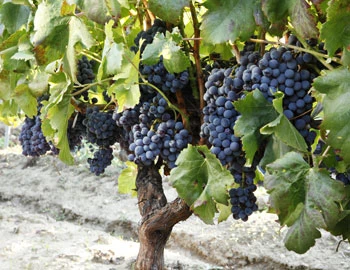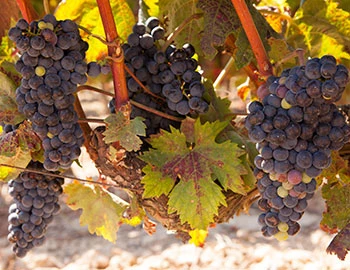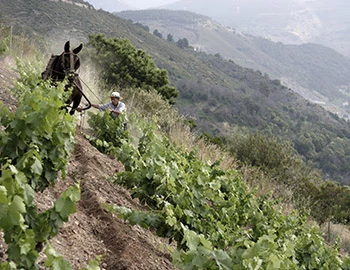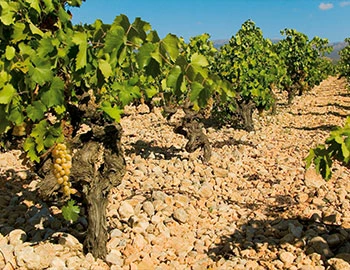
Yjar 2018
DOC Rioja, Remelluri, 750 ml

| Grape variety: | Tempranillo, Graciano, Garnacha, Garnacha Roja |
| Producer: | Diverse |
| Origin: | Spain / Rioja |
Description
Citing Robert Parker The Wine Advocate "The second vintage of the top- of-the-range 2018 Yjar was produced with Tempranillo, Garnacha, Graciano and other grapes from selected plots from Remelluri. It has 14.6% alcohol and a pH of 3.45. This has a more modern profile than the other wines from Remelluri, with more sophisticated tannins, a wine that is different, ripe and powerful, with the depth of the Remelluri wines. It's spicy and peppery, long and chewy with a long finish marked by the limestone from the soils. 5,700 bottles produced. It was bottled in May 2021."
Attributes
| Origin: | Spain / Rioja |
| Grape variety: | Tempranillo, Graciano, Garnacha, Garnacha Roja |
| Ripening potential: | 3 to 20 years |
| Drinking temperature: | 16 to 18 °C |
| Food Pairing: | Roasted lamb gigot, Châteaubriand, Filet Wellington, Hearty stew with pulses |
| Bottling: | no filtration |
| Volume: | 14.5 % |
| Note: | Contains sulphites |
Garnacha
Grenache seldom comes alone
Spaniards and Sardinians make the Grenache contentious: both claim it originated from their country. In fact, it had already appeared in both places by the 16th century. But a large number of mutations in Spain indicates that it has deeper roots on the Iberian Peninsula. The Grenache is meaty, rich in tannins and spicy, with a wonderful, fruity sweetness and rich aromas of blackberry, cassis, plums and pepper. Under the name Garnacha, it contributes fullness to the Rioja. In Sardinia it is called Cannonau, where it yields strong, expressive wines. But its stronghold is in France. Grenache is the star in Châteauneuf-du-Pape and streams into many other assemblages from the south. Its preferred partners are Syrah and Mourvèdre. This blend is also very popular abroad. In Australia, these wines are simply called "GSM".

Tempranillo
Iberian Native
The Tempranillo is the emblem of Spain. With its juicy cherry fruit, crisp tannins, and its notes of leather and spices, it gives the Rioja its face. In the Ribera del Duero, it is known as Tinta del país. Here it turns out focused and muscular. As it has inhabited the Iberian Peninsula for centuries, it is known under countless synonyms. Across the border in Portugal, it is called Tinta Roriz, and lends colour and body to port wine. It also plays an important role in the booming wine scene of the Douro Valley. The Tempranillo owes its name to its early maturity – "temprano" in Spanish means "early". Tip: do it like they do in Spain and enjoy it with lamb.

Graciano
A small, mundane black one
Graciano is an old red variety, originally from Sardinia. However, it was propagated diligently after the Spanish occupation of the island in the 16th century. Thus, today it is found in the Languedoc-Roussillon region of southern France, Bulgaria, Tunisia, Algeria, Argentina, Brazil and South Africa, among others. But this vine achieved particular importance in Spain.
Until 1850, Graciano was one of the most important varieties in Rioja. But the phylloxera epidemic afflicted the Graciano so seriously that it was threatened with extinction. In 1991, the Rioja region was classified as a controlled region of origin, whereby Graciano experienced an upturn.
The late-maturing, low-yielding vine generates small blue-black bunches with extremely hard-skinned berries. Purely Graciano wines are dark in color with striking acidity and intense tannins. In blends, Graciano lends acidity, structure and bouquet to red wines. It also enhances the aging potential.

Rioja
Rioja: A legend in upheaval
It is the flagship of the Spanish wine industry: the Rioja region, with its elegant, yet storable wines, most of which are dominated by the Tempranillo, has decisively influenced the image of Spanish wine. Above all, the Reservas and Gran Reservas, aged for years in barrels, enjoy a magical reputation. For about 20 years, the Rioja houses have created a sensation with modern-designed, fruity wines, which are marked more by their terroir than their aging processes.

Spain
Spain – Variety and perfection
“Somewhere in la Mancha, in a place whose name I do not care to remember...,” begins Don Quixote's odyssey.
The most famous part is definitely when Don Quixote thinks windmills are his enemy and wants to fight them – until they nearly kill him. It’s possible there was a bit too much of the La Mancha wine at play. Spanish vines fight for their survival in rugged landscapes, battling fierce drought and rough soils. But they fight well.


